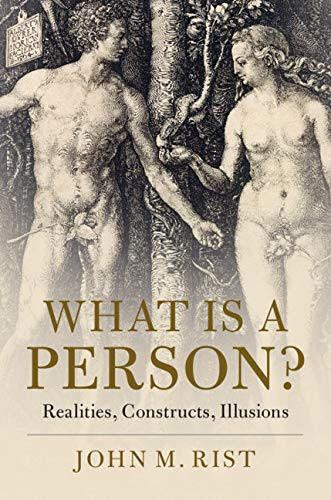Catholic Medical Quarterly Volume 71(1) February 2021
Book Review
What is a person:
Realities, Constructs, Illusions
John M. Rist, Published Cambridge University Press
Reviewed by Dr Pravin Thevasathan
 What
does it mean to be a person? For those who follow Peter Singer and others
who deny an objective moral order, it is all a matter of choice. For
Singer, notoriously enough, a new-born infant is not a person and may thus
be a legitimate candidate for infanticide.
What
does it mean to be a person? For those who follow Peter Singer and others
who deny an objective moral order, it is all a matter of choice. For
Singer, notoriously enough, a new-born infant is not a person and may thus
be a legitimate candidate for infanticide.
John Rist is one of the leading Catholic academics of our age. While he does not specifically refer to Singer, he does beautifully illustrate here that the philosophical errors of the twentieth century were a consequence of Enlightenment ideas.
Things were not so before the Enlightenment. From Boethius and Augustine to Aquinas, there was a wonderful consistency about what being a person is. There were differences between Christian ideas and those of Pagan Rome. For the pagans, human dignity depends on status. Slaves had less dignity than non-slaves. In contrast, St Paul affirmed that all humans are of equal worth. It was the influence of Christianity that led to the abolition of slavery.
All this changed with the British empiricists, Locke and Hume. The rejection of metaphysics led to the rejection of an objective moral order. There was also a move from human dignity to human rights, as well as rejection of religious principles in ethical evaluation. A natural law devoid of God was created by Grotius, among others.
Human rights claims have multiplied since the Enlightenment. We now have abortion rights, same sex marital rights and a host of other rights. The principle of autonomy trumps all other principles. As Rist argues, Christianity would have restricted our autonomy by the bonds of morality and a loving spirituality. But now we follow Hobbes in believing that only the "common-wealth" has the power to determine not only what a person is but also what rights those persons are allowed to have.
For those of us with an interest in the ethics of health care, this work is a superb argument for the restoration of an authentically Christian ethics.
